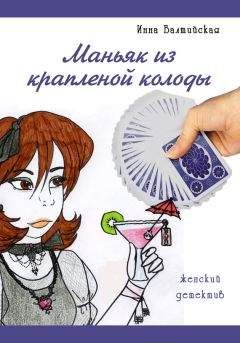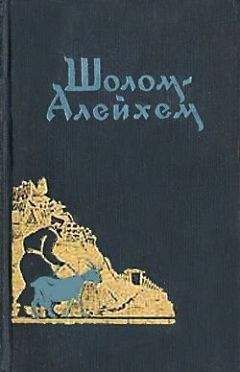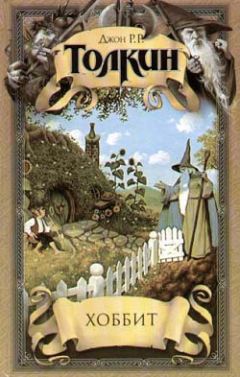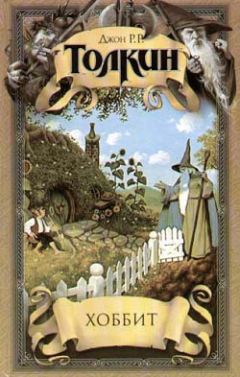Джон Толкиен - Английский язык с Дж. Р. Р. Толкиеном. Хоббит
At length he spoke again (наконец он снова заговорил): “This is no time for angry words, Master (сейчас не время для сердитых слов, Глава Города), or for considering weighty plans of change (или для обдумывания важных планов по смене /власти/; weighty — веский, важный, весомый; weight — вес, груз, тяжесть; важность, значение). There is work to do (еще предстоит много работы). I serve you still (я все еще служу тебе) — though after a while (хотя, спустя какое-то время) I may think again of your words (я, возможно, снова подумаю о твоих словах) and go North (и отправлюсь на Север) with any that will follow me (со всеми: «с любым», кто последует за мной). ”
deliberately [dɪˈlɪb (ǝ) rɪtlɪ] creature [ˈkri: tʃǝ] weighty [ˈweɪtɪ]
As you see, the Master had not got his position for nothing. The result of his words was that for the moment the people quite forgot their idea of a new king, and turned their angry thoughts towards Thorin and his company. Wild and bitter words were shouted from many sides; and some of those who had before sung the old songs loudest, were now heard as loudly crying that the dwarves had stirred the dragon up against them deliberately! “Fools!” said Bard. “Why waste words and wrath on those unhappy creatures? Doubtless they perished first in fire, before Smaug came to us. ” Then even as he was speaking, the thought came into his heart of the fabled treasure of the Mountain lying without guard or owner, and he fell suddenly silent. He thought of the Master’s words, and of Dale rebuilt, and filled with golden bells, if he could but find the men.
At length he spoke again: “This is no time for angry words. Master, or for considering weighty plans of change. There is work to do. I serve you still — though after a while I may think again of your words and go North with any that will follow me. ”
Then he strode off (затем он ушел большими шагами) to help in the ordering of the camps (чтобы помочь в устройстве лагерей; to order — приводить в порядок; order — порядок) and in the care of the sick and the wounded (и /оказании/ заботы больным и раненным; wound — рана, ранение; to wound — ранить). But the Master scowled at his back (но Глава бросил на его спину сердитый взгляд; to scowl — сердито смотреть, хмуриться) as he went (когда тот ушел), and remained sitting on the ground (и остался сидеть на земле). He thought much but said little (он думал много, но сказал мало), unless it was to call loudly for men (он только громко позвал слуг; unless — если не, пока не, разве только, не считая) to bring him fire and food (чтобы ему принесли огня и пищи).
Now everywhere Bard went (теперь везде, куда шел Бард) he found talk running like fire (он обнаруживал, что разговоры распространялись: «пробегали» подобно огню) among the people (среди людей) concerning the vast treasure (относительно бесчисленного: «обширного» сокровища; to concern — касаться, иметь отношение) that was now unguarded (что сейчас осталось без охраны: «было теперь неохраняемым»). Men spoke of the recompense for all their harm (люди говорили о возмещении всех их убытков; harm — вред, ущерб, зло) that they would soon get from it (которое они вскоре получат от него /сокровища/), and wealth over and to spare (и богатства в избытке: «сверх и чтобы /еще/ сберечь = отложить) with which to buy rich things from the South (при помощи которого они накупят роскошных вещей на Юге: «с Юга»); and it cheered them greatly in their plight (и это чрезвычайно поддерживало их в их трудном положении). That was as well (и это было даже к лучшему), for the night was bitter and miserable (так как ночь была мучительной и скверной). Shelters could be contrived for few (временные жилища были устроены лишь для немногих; shelter — кров, пристанище, приют; to contrive — придумывать, изобретать; разрабатывать) (the Master had one (у Главы Города он был)) and there was little food (и еды было немного) (even the Master went short (даже у Главы Города /припасы/ закончились; to go (went, gone) short = to run short — истощаться, подходить к концу)). Many took ill (многие заболели) of wet (от сырости) and cold (и холода) and sorrow (и печали) that night (в ту ночь), and afterwards died (и впоследствии умерли; to die — умирать), who had escaped uninjured (те, кто сумел убежать без повреждений; to injure — ушибить, повредить, причинить боль; (un) injured — (не) пострадавший, (не) получивший повреждений) from the ruin of the town (из-под развалин города); and in the days that followed (и те дни, что последовали) there was much sickness (было много заболеваний; sickness — болезнь, заболевание, тошнота) and great hunger (и сильный голод). Meanwhile Bard took the lead (тем временем Бард взял на себя руководство; to take the lead — брать на себя руководство, проявлять инициативу; lead — руководство, инициатива), and ordered things as he wished (и отдавал приказы по наведению порядка, как он того желал), though always in the Master’s name (хотя всегда от имени Главы Города), and he had a hard task (и у него была довольно трудная задача) to govern the people (управлять людьми) and direct the preparations (и направлять /работы/ по приготовлению) for their protection and housing (для их защиты и обеспечения жильем; tohouse — предоставлять жилище, обеспечивать жильем, приютить). Probably most of them (возможно, что большинство из них) would have perished in the winter (погибли бы этой зимой) that now hurried after autumn (что теперь уж торопилась вслед за осенью), if help had not been to hand (если бы им не была оказана своевременная помощь: «если бы помощь не была под рукой»).
wounded [ˈwu: ndɪd] unguarded [ʌnˈɡɑ: dɪd] plight [plaɪt] uninjured [ʌnˈɪndʒǝd]
Then he strode off to help in the ordering of the camps and in the care of the sick and the wounded. But the Master scowled at his back as he went, and remained sitting on the ground. He thought much but said little, unless it was to call loudly for men to bring him fire and food. Now everywhere Bard went he found talk running like fire among the people concerning the vast treasure that was now unguarded. Men spoke of the recompense for all their harm that they would soon get from it, and wealth over and to spare with which to buy rich things from the South; and it cheered them greatly in their plight. That was as well, for the night was bitter and miserable. Shelters could be contrived for few (the Master had one) and there was little food (even the Master went short). Many took ill of wet and cold and sorrow that night, and afterwards died, who had escaped uninjured from the ruin of the town; and in the days that followed there was much sickness and great hunger. Meanwhile Bard took the lead, and ordered things as he wished, though always in the Master’s name, and he had a hard task to govern the people and direct the preparations for their protection and housing. Probably most of them would have perished in the winter that now hurried after autumn, if help had not been to hand.
But help came swiftly (но помощь пришла быстро); for Bard at once (так как Бард немедленно) had speedy messengers sent up the river (отправил быстрых гонцов вверх по реке) to the Forest (к Лесу) to ask the aid of the King of the Elves of the Wood (чтобы попросить помощи у Короля Лесных Эльфов), and these messengers (и эти гонцы) had found a host already on the move (обнаружили войско уже в пути; host — /поэт. арх. / войско, воинство; on the move — в движении, на ногах), although it was then only the third day (хотя тогда был только третий день) after the fall of Smaug (после падения Смауга). The Elvenking had received news (Король эльфов получил новости) from his own messengers (от своих собственных гонцов) and from the birds that loved his folk (и от птиц, которым нравился его народ), and already knew much (и он уже знал многое) of what had happened (из того, что случилось). Very great indeed was the commotion (в действительности очень велико было беспокойство) among all things with wings (среди всех крылатых существ: «существ с крыльями») that dwelt on the borders (что обитали на границах) of the Desolation of the Dragon (Драконова Запустения). The air was filled with circling flocks (воздух был наполнен кружащимися стаями; flock — стадо; стая), and their swift-flying messengers (и их быстрокрылые: «быстро летающие» гонцы) flew here and there across the sky (летали там и здесь по небу). Above the borders of the Forest (над границами Леса) there was whistling (раздавался свист; to whistle — свистеть), crying and piping (крики и щебет; piping — игра на свирели; пронзительный резкий звук). Far over Mirkwood tidings spread (далеко над Мрачным Лесом распространялись известия): “Smaug is dead (Смауг мертв)!” Leaves rustled (листва шуршала) and startled ears were lifted (и встревоженные уши поднимались: «были подняты»; to startle — испугать, напугать, встревожить). Even before the Elvenking rode forth (даже до того, как Король эльфов отправился верхом вперед) the news had passed west (новости отправились на запад) right to the pinewoods of the Misty Mountains (прямо до сосновых лесов Мглистых Гор); Beorn had heard it in his wooden house (Беорн услышал эти /новости/ в своем деревянном доме), and the goblins were at council in their caves (и гоблины /собрались/ на совещание в своих пещерах).




